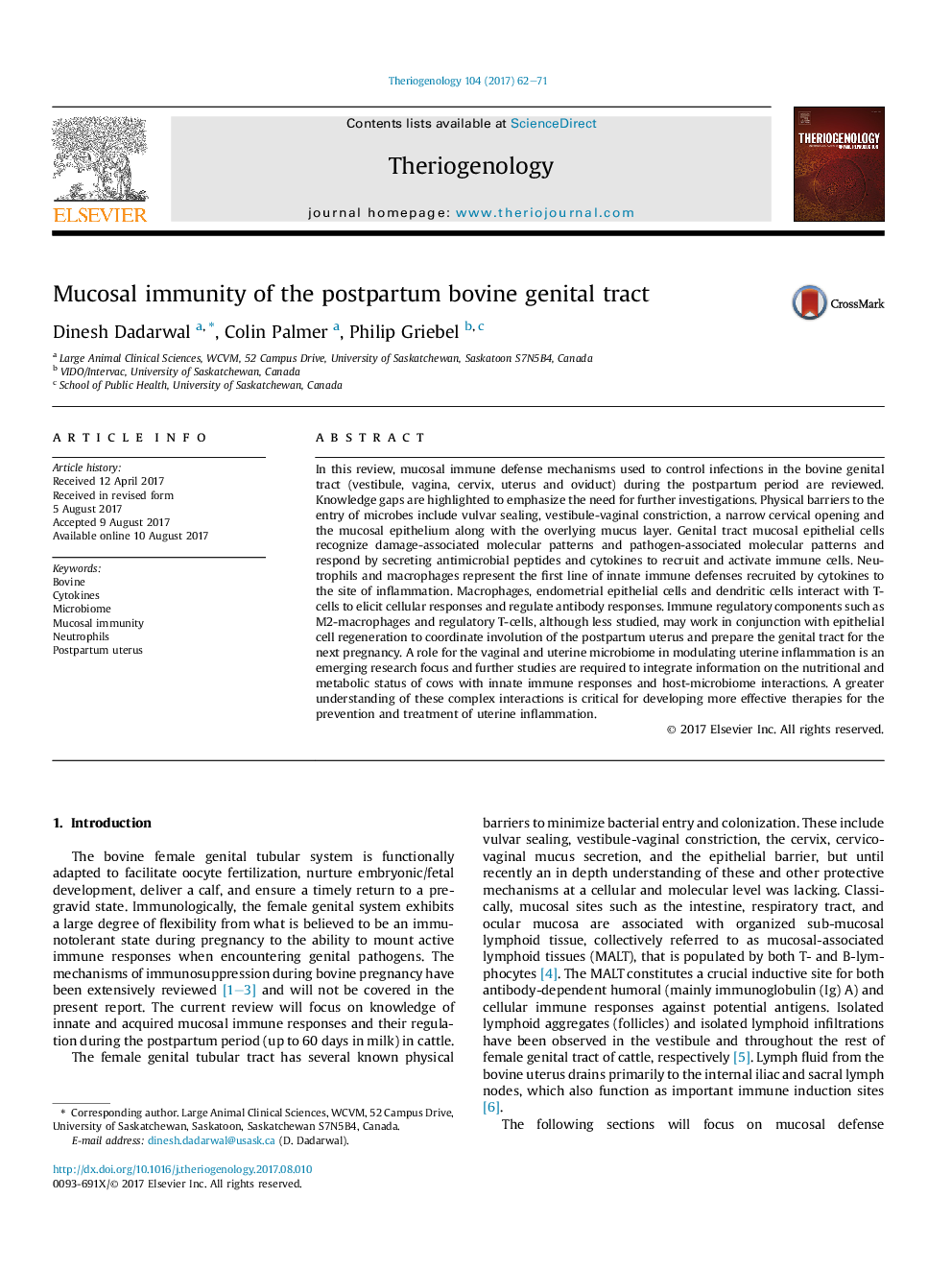| کد مقاله | کد نشریه | سال انتشار | مقاله انگلیسی | نسخه تمام متن |
|---|---|---|---|---|
| 5522988 | 1546065 | 2017 | 10 صفحه PDF | دانلود رایگان |
- Complexity of the mucosal immune system in the postpartum bovine genital tract is highlighted.
- Uterine involution is an inflammatory process that needs to be resolved in a timely manner for rebreeding to occur.
- Role of the epithelial cells in bacterial sensing, non-specific immune response and immune regulation is discussed.
- Neutrophil and macrophages are the first line of uterine immune defense against the infections.
- Complex interactions between the innate immune cells and lymphocytes facilitate an immune response in a controlled manner.
- Role of the genital tract microbiome in the pathogenesis and regulation of uterine inflammation is emphasized.
In this review, mucosal immune defense mechanisms used to control infections in the bovine genital tract (vestibule, vagina, cervix, uterus and oviduct) during the postpartum period are reviewed. Knowledge gaps are highlighted to emphasize the need for further investigations. Physical barriers to the entry of microbes include vulvar sealing, vestibule-vaginal constriction, a narrow cervical opening and the mucosal epithelium along with the overlying mucus layer. Genital tract mucosal epithelial cells recognize damage-associated molecular patterns and pathogen-associated molecular patterns and respond by secreting antimicrobial peptides and cytokines to recruit and activate immune cells. Neutrophils and macrophages represent the first line of innate immune defenses recruited by cytokines to the site of inflammation. Macrophages, endometrial epithelial cells and dendritic cells interact with T-cells to elicit cellular responses and regulate antibody responses. Immune regulatory components such as M2-macrophages and regulatory T-cells, although less studied, may work in conjunction with epithelial cell regeneration to coordinate involution of the postpartum uterus and prepare the genital tract for the next pregnancy. A role for the vaginal and uterine microbiome in modulating uterine inflammation is an emerging research focus and further studies are required to integrate information on the nutritional and metabolic status of cows with innate immune responses and host-microbiome interactions. A greater understanding of these complex interactions is critical for developing more effective therapies for the prevention and treatment of uterine inflammation.
Journal: Theriogenology - Volume 104, December 2017, Pages 62-71
